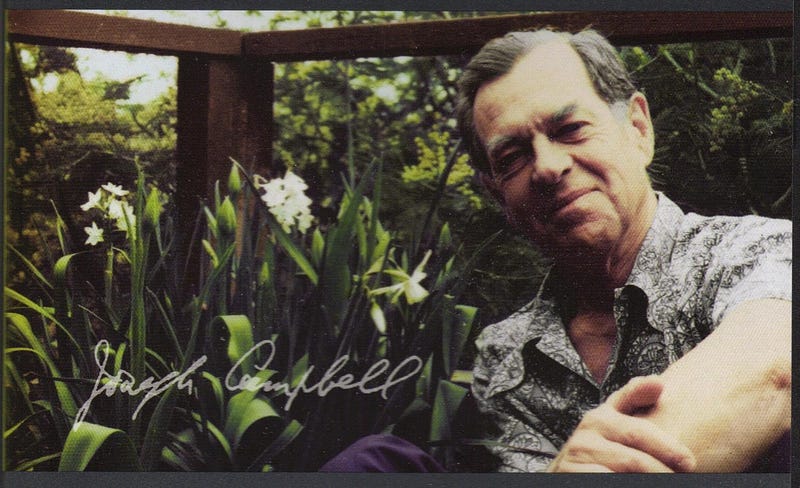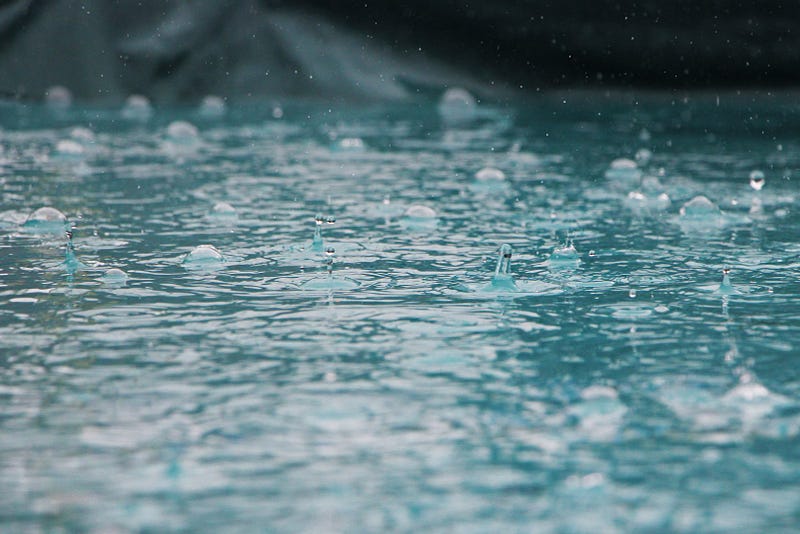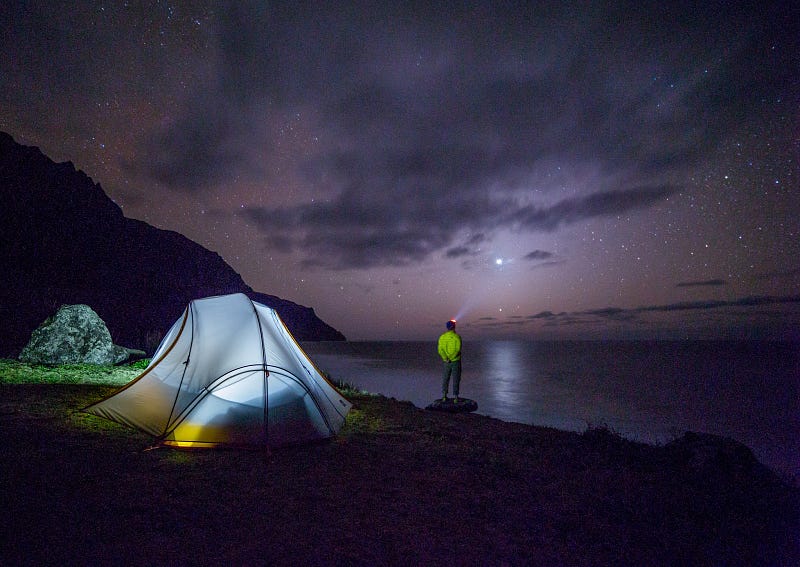I’m still recovering from my binger of Stranger Things, so this week I fasted from TV, re-visited two wisdom packed audiobooks, and one of my favorite thrillers of all time. Here’s the recap of the best media I enjoyed this week…
Quotes
Heraclitus, the ‘weeping’ philosopher has always been one of my favorites. Some gems of his to meditate on:
Unless you expect the unexpected, you will not find it, for it is hidden and thickly tangled.
Character is fate.
All flows.
Expecting the unexpected is hard. But in order to build a rational faith in our actions and pursuits… we must.
Audiobooks
If you ever feel insecure about your path in life, you might be onto something…
“The insecure way is the secure way.” — Joseph Campbell

There are two audiobooks with in-depth interviews of Joseph Campbell that offer streams of long-term insights on living well. These are The Wisdom of Joseph Campbell and The Power of Myth. The Wisdom of Joseph was recorded over a span of twelve years with the same interviewer. I think that level of rapport and friendship directly emboldens honest dialogue and storytelling. It’s a refreshing change from the superficial podcast interviews of today that are usually between two strangers or acquaintances.
Music
I’ve been a bit obsessed with working while having ambient rain playing in the background. This might be because I miss real rain so much. We haven’t had rain in the Bay Area for months.

If you haven’t tried listening to ambient rain yet, try it. It might be one of the best kept secrets for productivity and focus. Here are my three go-to tracks for ambient rain on YouTube, Spotify, and Amazon Music (free for Prime Members). Whether you have to get through dozens of emails, or any kind of tedious task at a computer… ambient rain sounds like summer, and it’s ready to help 🙂
Book
Most of you know that Michael Crichton is one of my favorite authors/thinkers/philosophers. But what most people don’t know is just how prolific and ahead of his time he was. Although he passed away at only 66 years old in 2008, his works are gradually re-emerging in the mainstream. For instance:
His screenplay and the resulting movie he directed called Westworld is currently being remade by Jonathan Nolan, his wife Lisa Joy, and J.J. Abrams for HBO. Westworld was originally created back in 1973 with a budget of only $1M, and pioneered several new types of special effects, along with making one of the first public mentions of a ‘computer virus.’ Here’s the 1:36min trailer for the HBO remake, and Crichton on Westworld and where the ideas come from:
I make up little stories about how I get ideas, but I really don’t know most of the time. I think I got the idea for Westworld because I was very interested in the astronauts. I was fascinated by the fact they were being trained to be machines. Then I was also fascinated by the animated figures at Disneyland. The two tendencies toward making people as machine like as possible and machines as human as possible are creating a lot of confusion. That’s what suggested Westworld to me. — Michael Crichton
Another one of his novels called Micro (a techno-thriller) recently started the journey to become a movie, being developed by Steven Spielberg and DreamWorks.
On top of that, Crichton’s wife Sherri recently uncovered another manuscript for a book called Dragon’s Teeth, and four days days ago it was announced that Harper Collins acquired the rights to publish it, and the National Geographic Channel acquired the rights to develop it into a mini-series.
These are solid examples of robust and (maybe even) antifragile stories.
All the recent buzz nudged me to re-visited Crichton’s novel, Sphere. Without a doubt, this thriller is still one of my all time favorite books. The 1998 movie version is subpar compared to the novel. I think it will be remade soon, likely as a mini-series. The origin story of Sphere is particularly inspiring because Crichton started the novel in 1967 but didn’t finish and publish it until 1987. Some art takes twenty years to create.
I don’t want to spoil too much of the plot, but this description by Crichton gives an intriguing introduction:
I started the story in 1967 as a companion piece to The Andromeda Strain. But then, I didn’t know where to go with it. The idea of doing a story about contact with superior intelligence, a time-honored theme, is that it’s very hard, if you stop and think about it. Most writers evade the issue by making the alien recognizably human. It’s 9 feet tall, with spiky teeth, and it wants to eat you. Or it’s 3 feet tall and wants to hug you. In either case, it’s human-like.
What’s more likely about first contact with an extraterrestrial is that the alien wouldn’t look human-like at all. You might not even be able to see it or detect it. And its behavior would be absolutely inexplicable. –Michael Crichton
Here are the Kindle, and Audible versions of Sphere. I suspect the novel barely scratches the surface of Crichton’s thoughts about what we call imagination. For those who would wield imagination for good, or explore the unconscious safely, you won’t be disappointed.
A final thought and one more quote…
These days, the number one thing most people avoid is direct experience.
They are hungry for real learning, but somehow think that it can only happen from behind screens. The reality is, one of the best catalysts for positive change and applied learning comes from directly experiencing the world, which often happens in nature. While more people in the world retreat towards digital hallucinations, direct experience in nature (which helps wisdom emerge) is increasingly something no one wants to endure.

Here is William Blake on the price of direct experience and wisdom:
What is the price of Experience?
Do men buy it for a song?
Or wisdom for a dance in the street?
No, it is bought with the price
Of all that a man hath…
Wisdom is sold in the desolate market where none come to buy.
In our modern world, hardly anyone is lining up to buy direct experience. Fortunately, when no one lines up to buy, it’s a buyer’s market.
Direct experience can come from media we choose to consume for a specific purpose (to boost our imagination, challenge assumptions, provoke thought, or inspire us to get out and explore nature). Other direct experiences might be summer vacations, those hikes we’ve been putting off, the friend we’ve been meaning to hang out with, volunteering, swimming, exploring randomly as a flâneur, the trip with friends to that AirBnb at the beach we’ve always wanted to rent… Or it might be forcing ourselves to get outside and run. I’ve found that direct experience is hard to force myself into, but once I’m there, it’s always rewarding.
As kids, summer was the time to go play and explore. As adults, all kinds of weird societal pressures are exerted on us. Because it’s an election year, most adults think it’s their duty to keep a portion of their mind rented out/dedicated to both political candidates. There isn’t anything better to remove the political mind virus than healthy media, fiction, or direct experience in nature. It’s not easy and it requires discipline, but it’s always worth it.

